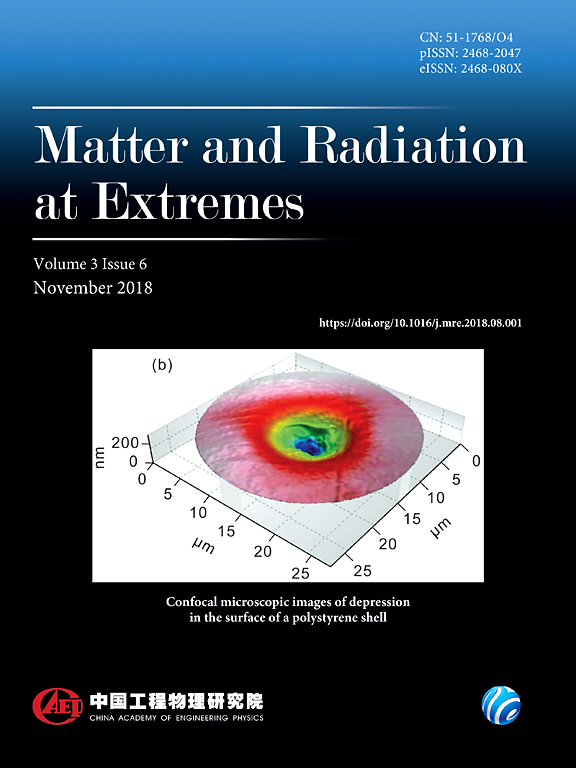No evidence of superconductivity in a compressed sample prepared from lutetium foil and H2/N2 gas mixture
IF 4.7
1区 物理与天体物理
Q1 PHYSICS, MULTIDISCIPLINARY
引用次数: 8
Abstract
A material described as lutetium–hydrogen–nitrogen (Lu-H-N in short) was recently claimed to have “near-ambient superconductivity” [Dasenbrock-Gammon et al., Nature 615, 244–250 (2023)]. If this result could be reproduced by other teams, it would be a major scientific breakthrough. Here, we report our results of transport and structure measurements on a material prepared using the same method as reported by Dasenbrock-Gammon et al. Our x-ray diffraction measurements indicate that the obtained sample contains three substances: the face-centered-cubic (FCC)-1 phase (Fm-3m) with lattice parameter a = 5.03 Å, the FCC-2 phase (Fm-3m) with a lattice parameter a = 4.755 Å, and Lu metal. The two FCC phases are identical to the those reported in the so-called near-ambient superconductor. However, we find from our resistance measurements in the temperature range from 300 K down to 4 K and the pressure range 0.9–3.4 GPa and our magnetic susceptibility measurements in the pressure range 0.8–3.3 GPa and the temperature range down to 100 K that the samples show no evidence of superconductivity. We also use a laser heating technique to heat a sample to 1800 °C and find no superconductivity in the produced dark blue material below 6.5 GPa. In addition, both samples remain dark blue in color in the pressure range investigated.在由镥箔和H2/N2气体混合物制备的压缩样品中没有超导性的证据
一种被称为镥氢氮(简称Lu-H-N)的材料最近被声称具有“近环境超导性”[Dasenbrock-Gammon et al., Nature 615, 244-250(2023)]。如果这一结果能被其他团队复制,那将是一个重大的科学突破。在这里,我们报告了我们使用Dasenbrock-Gammon等人报道的相同方法制备的材料的输运和结构测量结果。x射线衍射测量表明,所得样品含有三种物质:晶格参数a = 5.03 Å的面心立方(FCC)-1相(Fm-3m)、晶格参数a = 4.755 Å的FCC-2相(Fm-3m)和金属Lu。这两个FCC相与所谓的近环境超导体中的相相同。然而,我们在300 K至4 K的温度范围和0.9-3.4 GPa的压力范围内进行了电阻测量,在0.8-3.3 GPa的压力范围和100 K的温度范围内进行了磁化率测量,发现样品没有超导的迹象。我们还使用激光加热技术将样品加热到1800°C,并发现生产的深蓝色材料在6.5 GPa以下没有超导性。此外,在所调查的压力范围内,两种样品的颜色都保持深蓝色。
本文章由计算机程序翻译,如有差异,请以英文原文为准。
求助全文
约1分钟内获得全文
求助全文
来源期刊

Matter and Radiation at Extremes
Physics and Astronomy-Atomic and Molecular Physics, and Optics
CiteScore
8.60
自引率
9.80%
发文量
160
审稿时长
15 weeks
期刊介绍:
Matter and Radiation at Extremes (MRE), is committed to the publication of original and impactful research and review papers that address extreme states of matter and radiation, and the associated science and technology that are employed to produce and diagnose these conditions in the laboratory. Drivers, targets and diagnostics are included along with related numerical simulation and computational methods. It aims to provide a peer-reviewed platform for the international physics community and promote worldwide dissemination of the latest and impactful research in related fields.
 求助内容:
求助内容: 应助结果提醒方式:
应助结果提醒方式:


